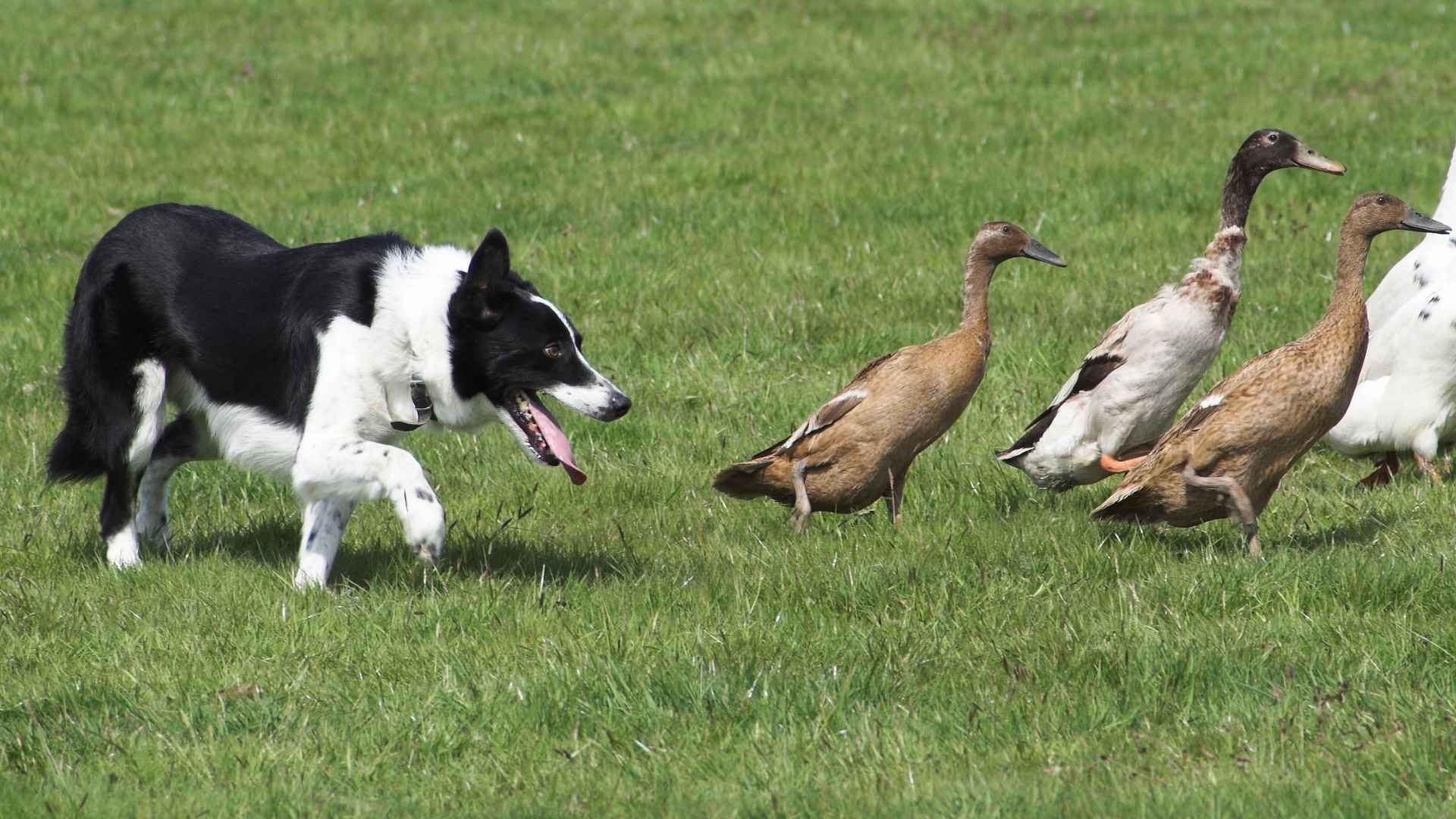Not every dog gets the memo about being gentle with ducks; some pups would see the feathered waddling friends and think of the chase me game. That’s exactly what you don’t want when you are doing everything to keep your flock healthy and happy. They might seem like unlikely companions, but dogs and ducks can eventually coexist.
Initial meetings can be filled with barking, chasing, honking, and flying feathers. Ducks will even defend themselves by snapping at a curious dog’s nose. We don’t think that’s a good scene to watch.
However, certain dog breeds just have a special kind of nature; they walk into your garden and already know what the homework is. They are not the routine family dogs that would think of ducks as fancy and squeaky toys. Nope. These are real-deal farm dogs that know how to protect.
So what’s better than having such tender dogs that form strong bonds with ducks and protect livestock, like that’s what they were bred for. They know they can control everything, sensibly for you.
Let’s begin with the breeds that have a gentle nature and know that their task isn’t to make your life hard or hell.
Dog Breeds That Play With Ducks On Farms Gently
1. Pembroke Welsh Corgi
Size: 10–12 inches
Weight: Up to 28-30 pounds
Lifespan: 12–13 years
Temperament: Alert / Affectionate / Smart
Oh, are you thinking that these short little legs do not scream “serious farm dog”? Sip coffee and read it out. Corgis are gems when it comes to being a working dog in the same place as ducks.
Britannica notes that Queen Elizabeth II kept over 30 Corgis throughout her life, though she eventually stopped breeding them in her later years.
These excellent companions have herding dog instincts, and that’s all inside their bodies. Originally bred to move cattle around Welsh farms, these family pets have an incredible knack for reading your animal’s behavior, and they can judge and handle the situation and slay!
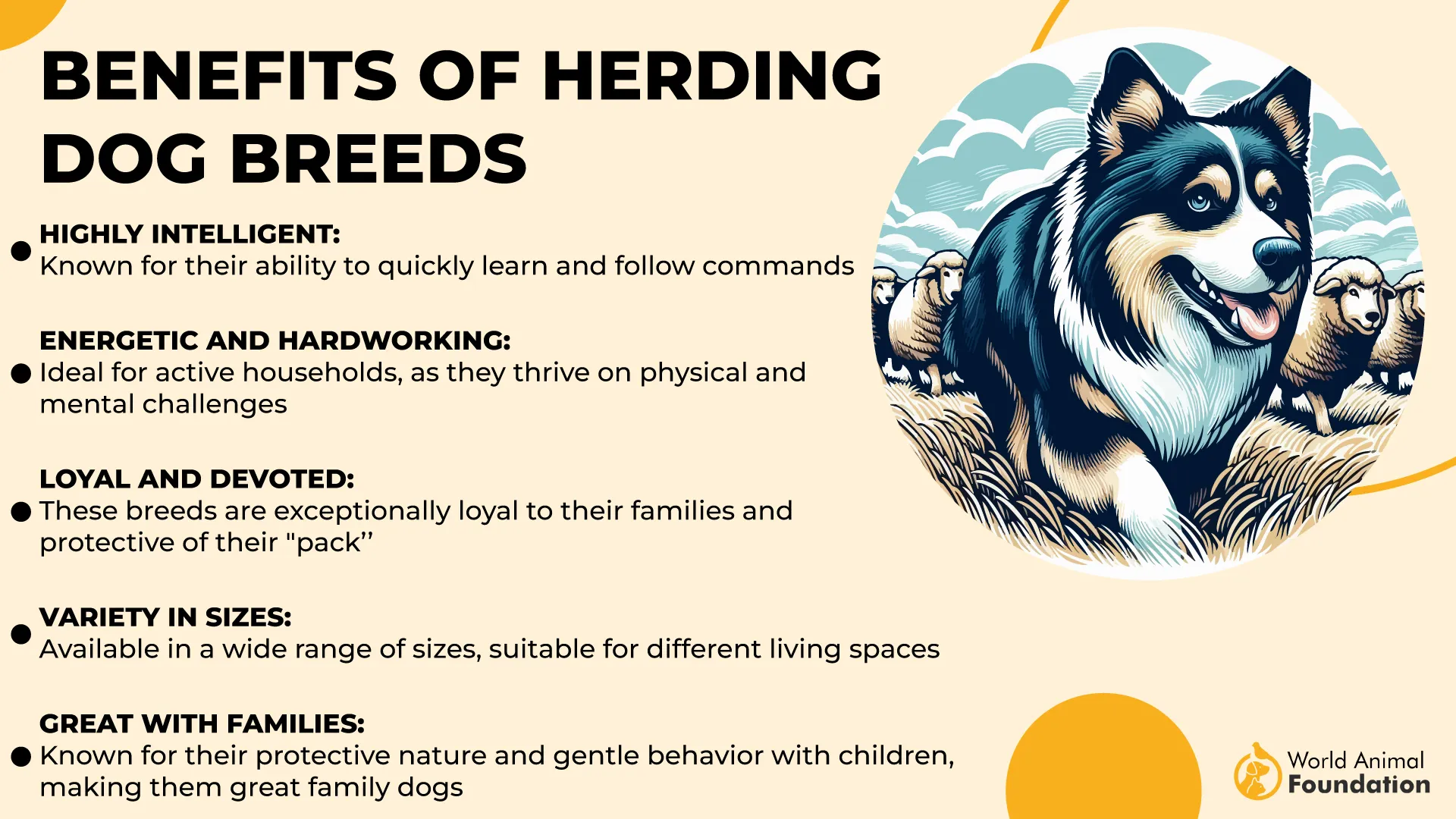
Why This Breed?
- They won’t spook your ducks with aggression
- Smart as a whip and learns farm routines like an A grader
- Kids? They love, and that’s why we say they are good dogs.
When the dog comes barreling toward your flock, the ducks are going to scatter like leaves in a windstorm. But a Corgi? They waddle over, give the ducks a look, “let’s go this way,” and you know what? The flock follows, a rare and cute scene.
These working dogs know they are livestock guardians, and they never stress out; everything gets done, but calmly.
2. Great Pyrenees
Size: 25–32 inches
Weight: 85-100+ pounds
Lifespan: 10–12 years
Temperament: Patient / Calm / Smart
If you want a dog that looks like it stepped out of a fairy tale and protects like a medieval knight, we have the Great Pyrenees here. These companion dogs are the gentle breeds that have great endurance, and they take the phrase livestock guardian dog.
They are not reactive, and you’ll love this thing. Other dogs might chase off a hawk or fox with all the subtlety of a fire alarm, but the Great Pyrenees seems to appear out of nowhere; one moment your ducks are exposed, and the next, there’s over 100 pounds of fluffy, powerful protection standing guard by their side.
Why Great Pyrenees?
- They have the right amount of aggression paired with the nature that fits a family companion dog.
- They are weather-proof (don’t test their patience)
- Gentle and affectionate with children
They assess situations calmly, never losing their cool. A raccoon lurking near the duck pen? The Great Pyrenees will handle it swiftly and silently, without causing a stir.
3. Golden Retriever
Size: 21.5–24 inches
Weight: 55–75 pounds
Lifespan: 10–12 years
Temperament: Intelligent / Friendly / Devoted
Golden Retrievers might not be the first breed that comes to your mind when you think about a dog with strong protective instincts, but yes, they are that good. These devoted protectors manage ducks like they had been doing the job since they were born.
They’ve not got that bull in a China shop energy, and they stay in attitude, move with care when they are around children and other dogs. They know trust has to be earned, not demanded.
Golden Retriever is a sweet and sensible dog breed that has a good hunting dog background, which gives them an advantage. They know exactly how birds think, move, and connect.
Partly, you can say they are a fish. That’s because if you have a pond or a stream nearby, they won’t waste a second enjoying it. Their webbed feet and waterproof coat help them.
Why Golden Retriever?
- Gentle guard dogs on your farm
- Easy to train and livestock guardian breeds
- A duck and a dog both in water mean you’ve got less worry.
They are so lovely creatures that proper training is not a chore; it feels like you are having a conversation with your loved one, and they listen to you.
4. Labrador Retriever
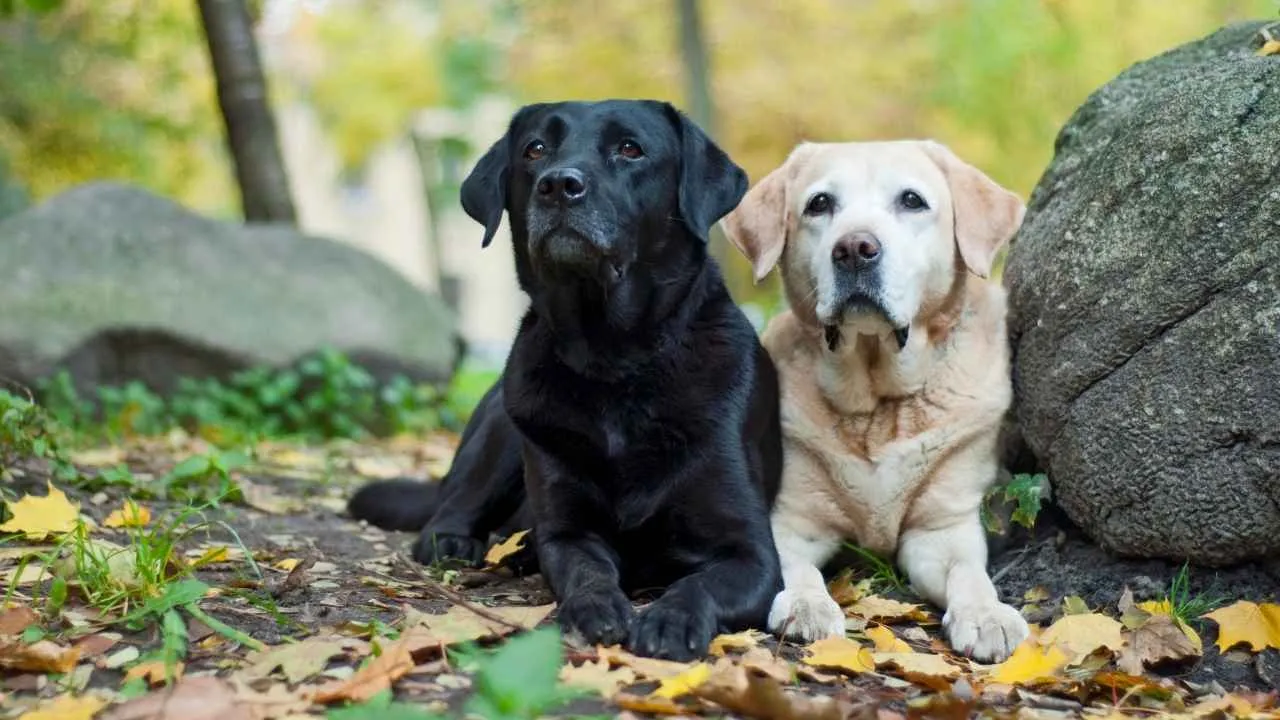
Size: 21.5–24.5 inches
Weight: 55–80 pounds
Lifespan: 11–13 years
Temperament: Friendly / Active / Outgoing
Labs are like the reliable friends you can always go to. Need to move furniture, they’ll come. Stressful day? They read you. These family dogs have a superb combo of work ethic and common sense that makes farm life a lot easier.
They are emotionally intelligent dog breeds, and they can also read the mood of a duck flock better than most people read other humans.
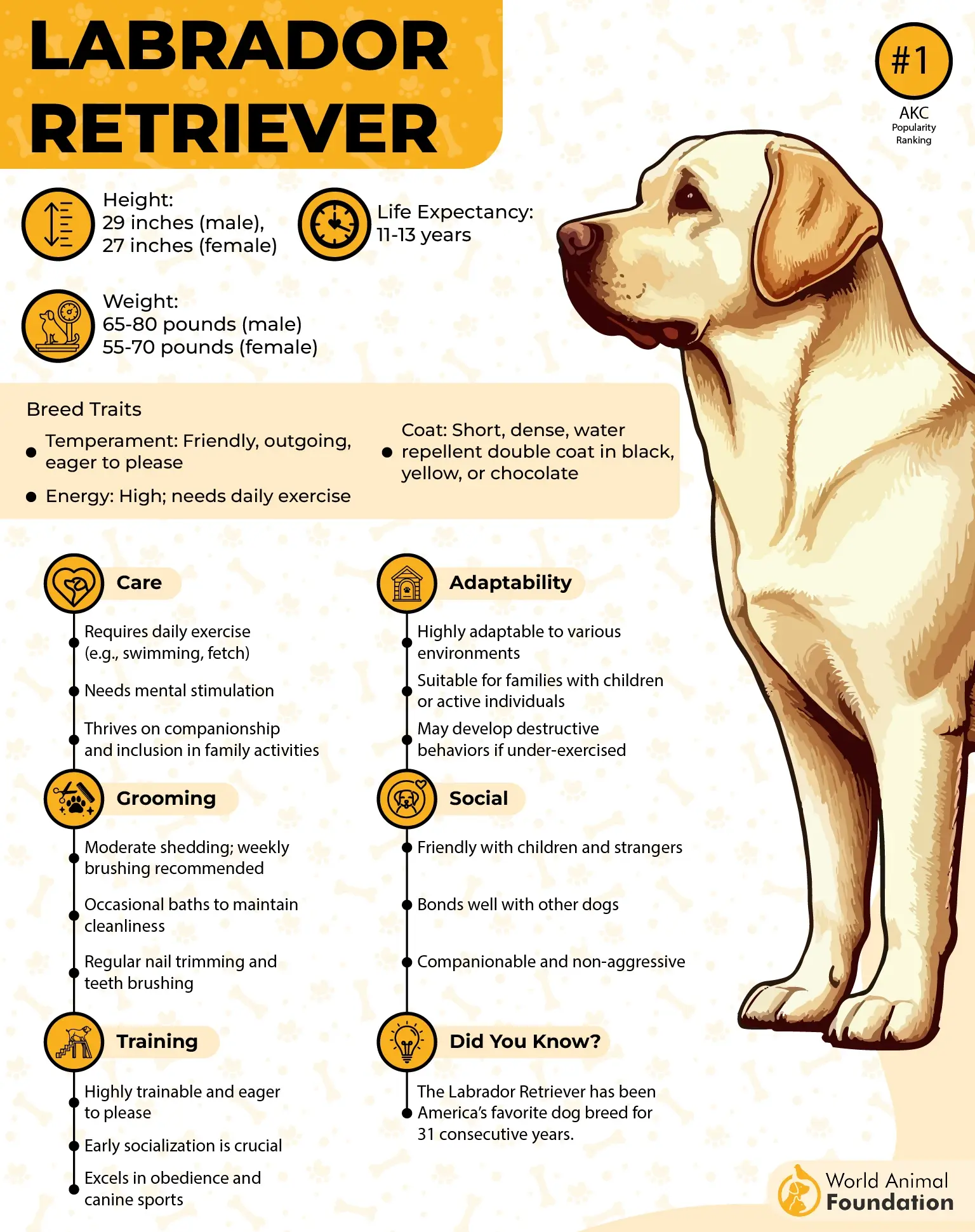
If the birds are stressed, Labs back off and let them settle. If the duck flock needs help, such a lovely and responsible dog jumps in.
Why Labs?
- Natural and perfect retrieving instincts
- The right training makes them problem-solvers
- Highly intelligent brains make them good human partners.
- They can receive a signal, and they know if there’s any potential threat on the farm
Labradors are a cooperative kind of dog breed that herds livestock, knows its targets, and is easy on things, unlike many dogs that panic.
5. Shetland Sheepdog
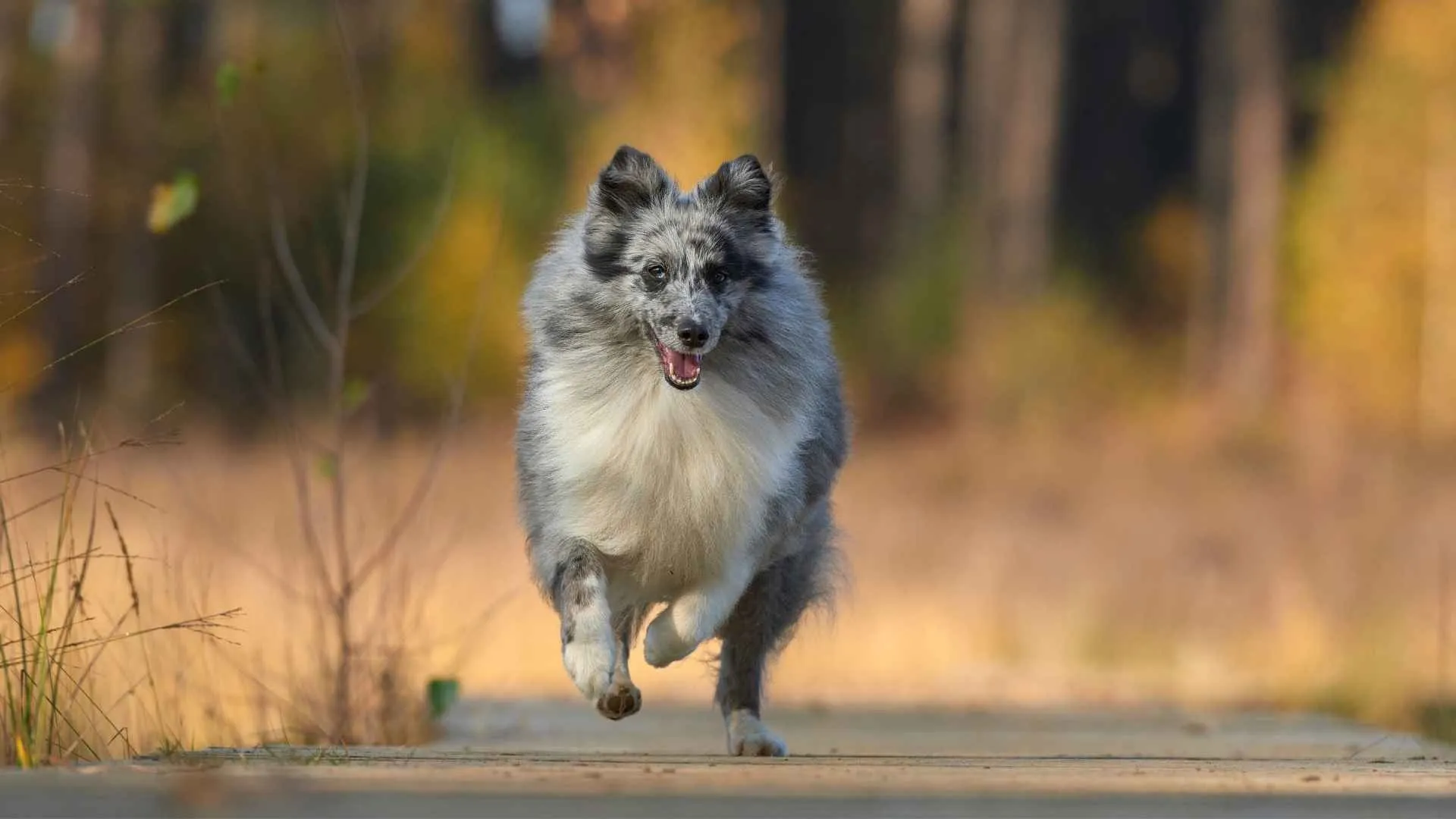
Size: 13–16 inches
Weight: 15–25 pounds
Lifespan: 12–14 years
Temperament: Playful / Energetic / Intelligent
Shetland Sheepdogs are good herding dogs, and they can even sense other predators. These small dogs can protect livestock easily and prove that they can be more useful than most of the large breeds.
You know what? They even notice the slightest changes in the duck’s behavior, and they spot the difference as a good farm dog in minutes.
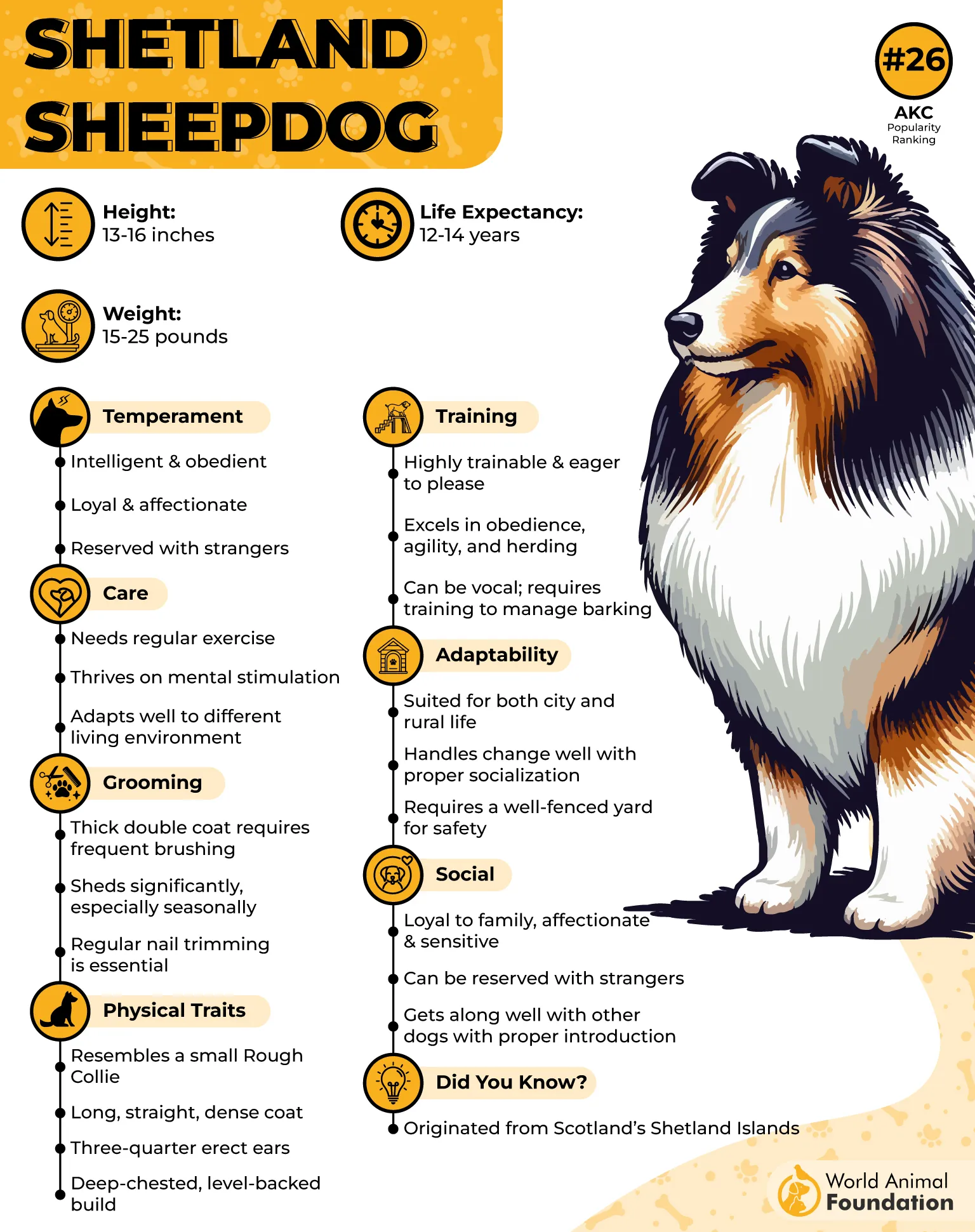
Big dogs can be intimidating for ducks, and in this way, the small livestock guardian dogs are a plus point. You’ll find them under tree branches, getting into the tight spaces, and working in areas where a large dog would not be able to. Their memory makes them a sterling puppy to herd and protect livestock.
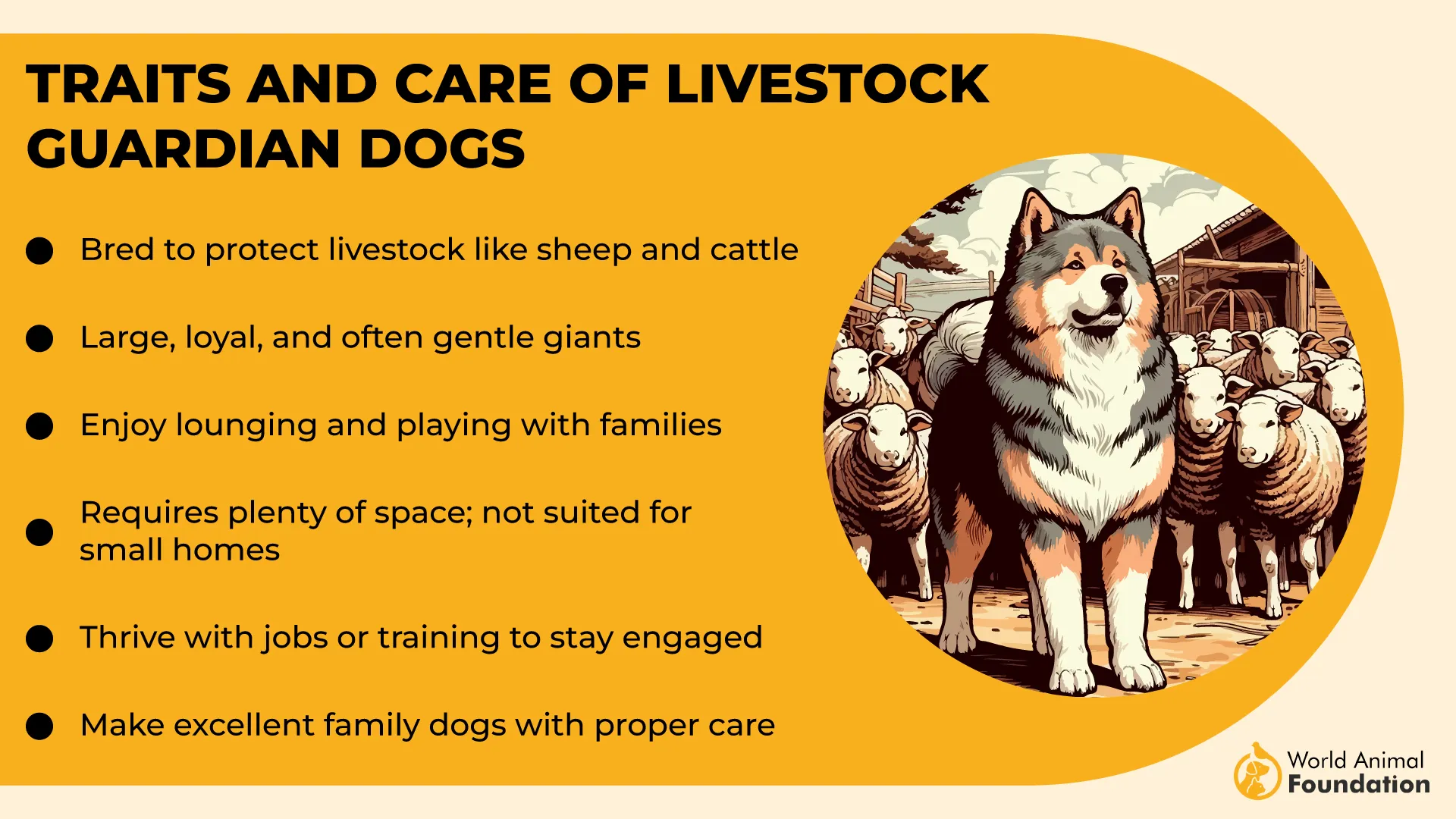
Why This Breed?
- Perfect size for close-quarters duck work
- Their intelligence helps them solve
- Their focus is better than young adults sometimes.
The American Kennel Club mentions that these dogs are bright and eager. Shelties are easy trainers and world-class competitors in obedience, agility, and herding trials. They are sensitive and affectionate family dogs, highly in tune with the mood of the household.
6. English Shepherd
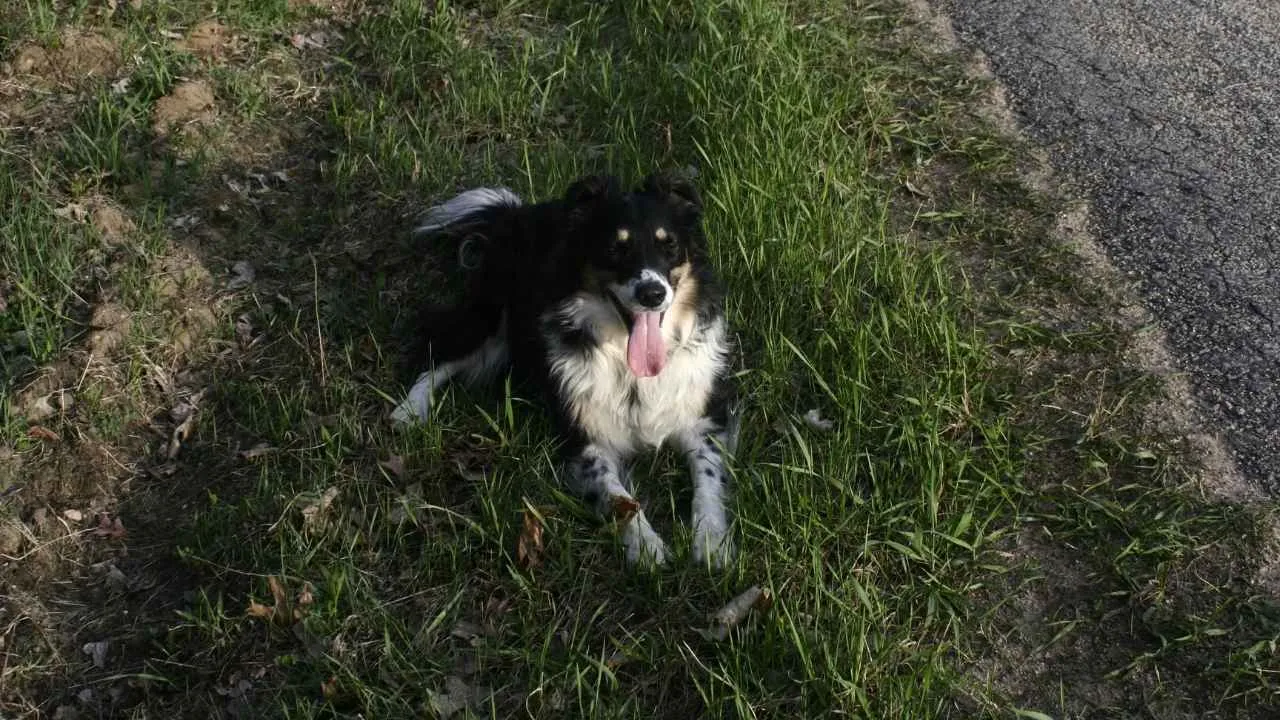
Size: 18-23 inches
Weight: 40-60 pounds
Lifespan: 12 -15 years
Temperament Protective/ Active / Kind
They are like Swiss Army knives of working dogs. They’ll handle whatever you throw at them, and this kind of calm and unflappable attitude is priceless, we guess.
These guard dogs have a splendid ability to switch gears based on the situation. In the morning, you find them gently guiding ducklings around the barnyard, and in the afternoon, they are like soldiers ready to hunt and kill.
They are naturally good at reading the livestock dynamics. If there’s a lead duck that the others follow, the Shepherd will focus on guiding that bird and know that the rest of the flock will follow.
Why This Breed?
- They adapt
- They know how animals behave, so they are ready
- They have a strong work ethic.
Their medium build and athletic nature make them perfect for farms with varied terrain. Take them to rocky hills, muddy ponds, or the dense bush, and they will navigate.
7. Border Collie
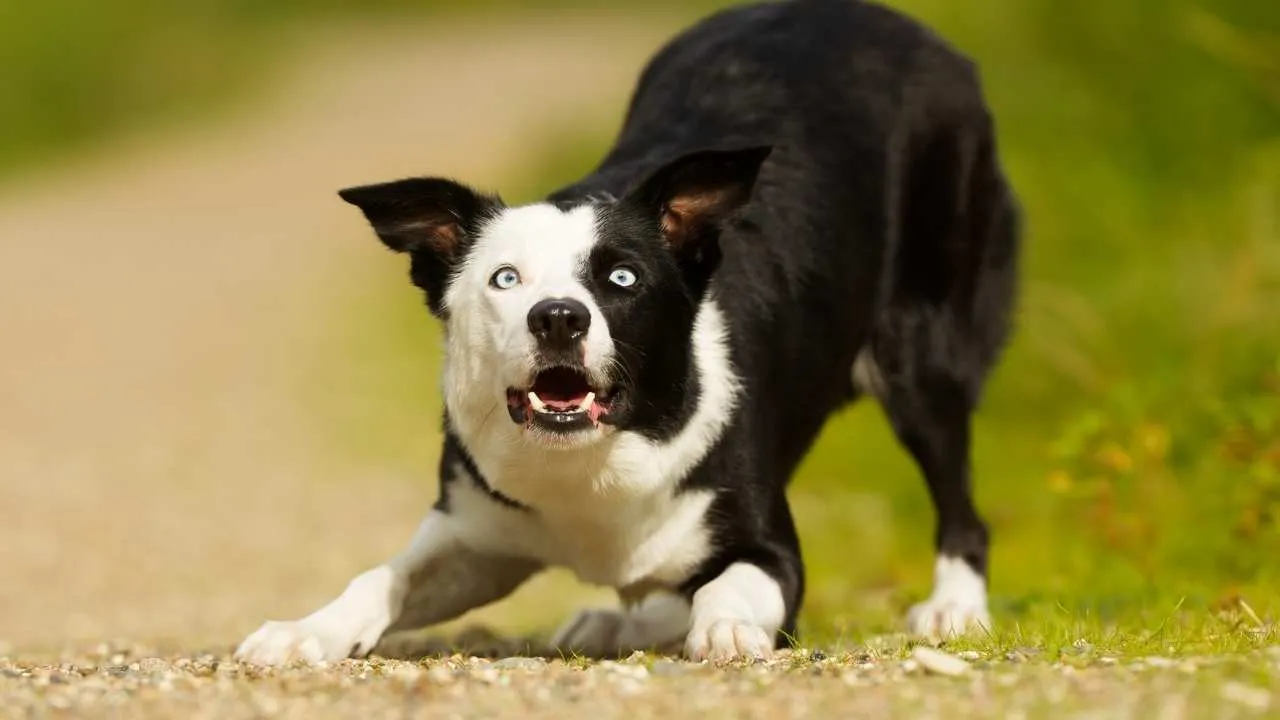
Size: 18-22 inches
Weight: 30-55 pounds
Lifespan: 12 -15 years
Temperament: Energetic / Smart / Affectionate
If dog breeds were college majors, Border Collies would be in Advanced Livestock Guardian Management. Did we exaggerate? Of course, no.
They work and read the minds of ducks. They have an intense stare at all things. That’s a legitimate herding technique that works like magic. These smart cookies use pure focus to move ducks exactly where they need to go.
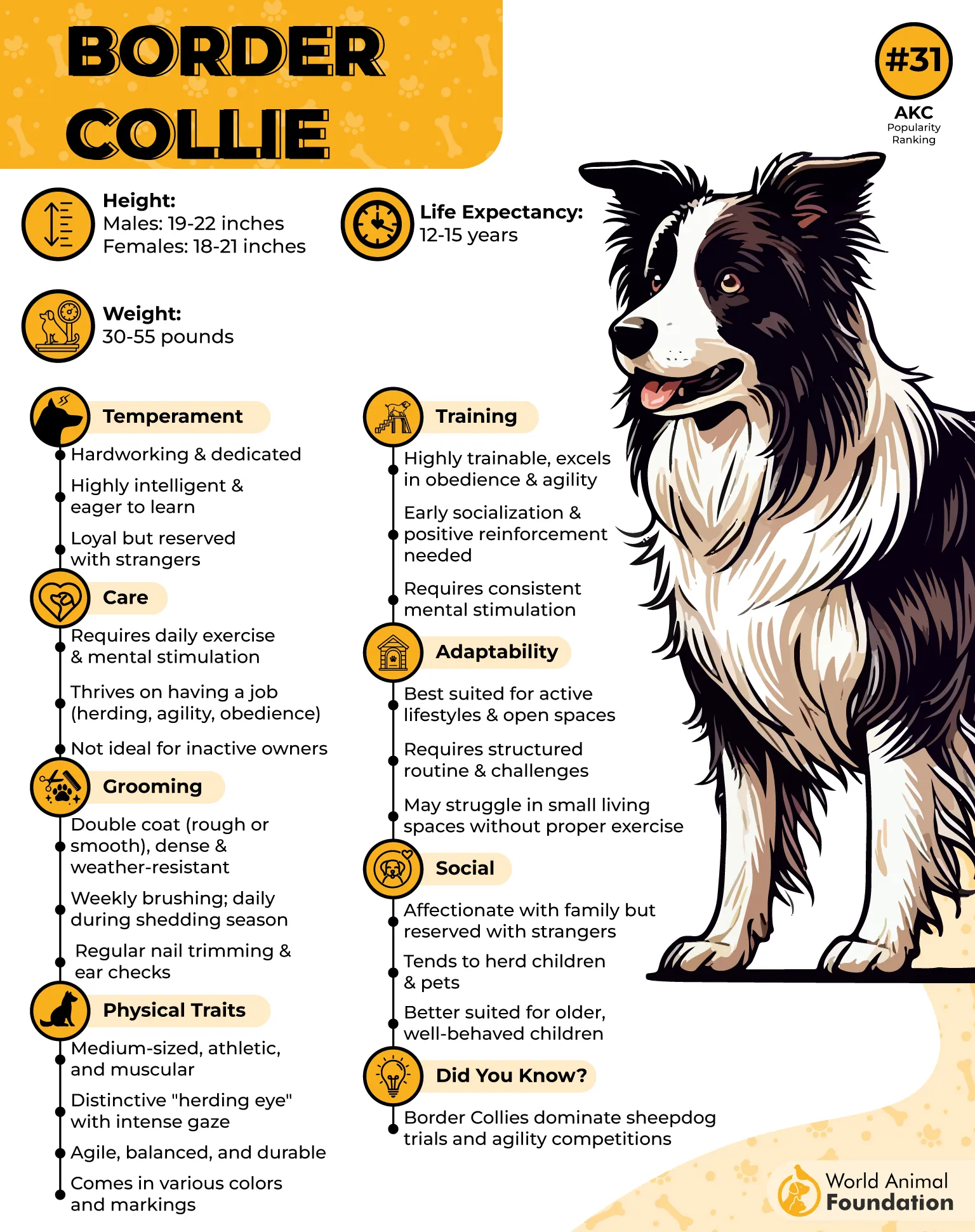
Give them ducks to manage, though, and you’ve got yourself a partner that will make farming easy.
Why Border Collie?
- Problem-solving skills that save you headaches
- Gentle and affectionate nature makes you fall for them every single day
- They form lasting bonds
We’d say that Border Collies have the right type of skills to judge the duck flocks as individuals. They are like a playful farmhand with a sharp mind; always ready to herd, guide, and gently keep ducks in line.
With their quick reflexes and instincts, they turn farm chores into a game, making them the perfect partner for keeping your feathered flock in check while having fun doing it.
Conclusion
You don’t have to apply any maths to find a dog that’s good with farms and is gentle with ducks. Just have a gentle and smart dog breed that gets the work, the energy, and the consistency. Next, you have the perfect livestock guardian dog that helps.
This article offers you to choose a lively protective dog for your ducks. These dogs have a gentle nature and prove to be affectionate fellows for your feathered flock.


